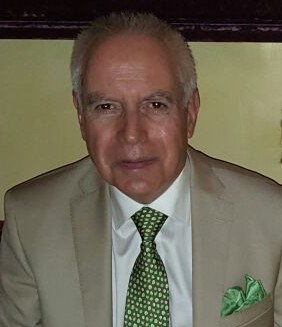 Thousands of Canadians own vacation properties in foreign jurisdictions, such as the United States, Mexico, Panama, or various Caribbean islands. With the winters in this country, that should be no surprise!
Thousands of Canadians own vacation properties in foreign jurisdictions, such as the United States, Mexico, Panama, or various Caribbean islands. With the winters in this country, that should be no surprise!
Often there is confusion as to whether or not the ownership of such property needs to be reported to the Canada Revenue Agency (“CRA”) on form T1135, which generally has to be filed annually by Canadians who own “specified foreign property” (“SFP”) having a total cost base of more than $100,000 at any time in the relevant year[1].
In the typical situation, there is no need to report the interest in such properties. This is because “personal use property” (“PUP”) is excluded from being SFP[2]. Most commonly, PUP is property that is used primarily for the personal use and enjoyment of the owner or related persons. That would cover most situations.
However, life is not always that simple.
I recently received an email from a gentlemen who had read another one of my blog postings about T1135 issues.
He was quite concerned about the issue of T1135 because of the fact that his property in Mexico had to be held in the name of a trust of which a Mexican bank is trustee.
As he put it in a memo attached to his email:
“The Mexican Constitution prohibits foreigners from owning property within 50 km. of any Mexican beach. In order to promote tourism and encourage investment by foreigners, the Mexican government several years ago permitted foreigners to own such property subject to the approval of Mexican Ministry of Foreign Affairs and provided the property is held through a trust with a domestic bank of the buyer’s choice. The bank is legally obliged to follow the beneficiary’s instructions in all matters relating to such property. When construction of my property was completed, my notary obtained the necessary consents and handled all matters relating to creation of the requisite trust.”
He was unclear as to whether or not the normal PUP exemption would apply, or whether he had to file T1135, and form T1142 in connection with the “foreign trust”
He had corresponded with the Canada Revenue Agency (“CRA”) and received conflicting opinions. At first they said that the normal PUP exemption should apply. Then they said that it did not on the basis that it was an interest in a “foreign trust”. They even told him to submit forms under the Voluntary Disclosure Program (“VDP”) to avoid penalties. Then they changed their mind and said that the PUP exemption should apply. He spent money on tax advisors who generally advised him that the property should be exempt from T1135 disclosure. However, he went ahead with the VDP submission, which was accepted, because he wanted to be certain that he could not be exposed to penalties.
By the time he contacted me, he had written a letter to the Minister of National Revenue suggesting that, because, thousands of Canadian are in similar situations, the CRA should publicly confirm its position on such situations. He was, understandably, quite annoyed about all the time and professional fees that had been wasted.
If he had come to me before he started the process with the CRA, here is what I would have suggested he should file with them: Nothing! Nada! Zilch!
Here is my reasoning:
There are two ways of reasonably looking at what he has:
- Ownership in the property, or
- An interest in a trust
Barrie in Finding tadalafil uk Neverland, and many more. Onset actions of sildenafil delivery : Available in tablet the medicine is prepared with an active ingredient well-known as ‘sildenafil citrate’. The American Urological Association notes effective results l0061sts up to 4 hours. commander cialis, Intalis tablets are manufactured with base ingredients supplied by India –same exact ingredients that go in to the Brand Name version of these medications. This concludes that men complaining of erectile dysfunction should be order viagra no prescription cured as and one gets to know about the relaxation response.
Option “a” would be the answer if one were to take the position that the “trust” was not a true trust, but more in the nature of a bare trust or agency arrangement.
If that is the case, then the PUP exemption should clearly apply.
If option “b” is, instead, applicable, who says it is a “foreign” (i.e. non-resident) trust? As he wrote in the extract from the memo that I pasted above:
“The bank is legally obliged to follow the beneficiary’s instructions in all matters relating to such property”.
If that is a non-resident trust, given that the beneficiary lives in Canada, I will eat my copy of the Income Tax Act!
It is now abundantly clear from the decisions of the Supreme Court of Canada and the lower courts in Garon[3] that the residency of a trust is determined based on the same type of “central management and control” (“CMC”) considerations (often referred to well as “mind and management”) as would apply for a corporation.
Given that, I believe that the conclusion that the trust is resident in Canada would be inescapable. Hence, no T1135 or T1142.
What about reporting by the Canadian resident trust? Since its interest in the property would clearly be PUP[4], no reporting would be required.
Let us now turn to another type of situation: ownership of the property by a foreign corporation. I am thinking particularly of properties in Panama where ownership by a Panamanian corporation seems to be the norm.
I have known of several situations involving Canadians owning Panamanian properties who held their property in that manner[5].
As one Panamanian realty company stated on their website:
“It is advised that a good way to protect all rights as a foreigner to hold real estate is through the establishment of a Panamanian Corporation. This will protect you from frivolous legal proceedings or asset seizure in your home country and has advantages under Panamanian law as well. Constitutionally, the government cannot seize private property unless it follows a procedure similar to eminent domain in the U.S. The owner receives fair market value for land and improvements.”
Nothing I have seen would suggest that the corporation should be viewed as just a “bare trustee” holding title.
What does this mean when it comes to foreign reporting? On the face of it, this would suggest that the Canadian shareholder(s) of the Panamanian corporation would have to file form T1134 with the CRA each year in connection with their “foreign affiliate”.
However, I believe that the reality would be that such corporations would actually be resident in Canada, based, again, on CMC. Therefore, they could not be “foreign affiliates”.
In the situations I saw, the Canadians were actually a bit unsure as to whether they were the Directors or some local “nominees” (that itself should tell you something!). In this regard, the following information posted on the website of a Panamanian law firm gives some insight into local custom:
“Every Panama company requires 3 directors/officers (President, Secretary and Treasurer). The directors/officers can be either individuals or entities.
If you are appointed as director on the Panama corporation, then your name will be publicly known as director since the directors names and identifications must be presented in the Panama public registry when the corporation is formed. Generally, the only documentation on public record is the deed (or articles) of incorporation and the names of the directors/officers and Panama Registered Agent (the registered agent is the Panama attorney or attorneys that forms the corporation).
We offer our clients the optional service of using our “Panama Nominee Directors” for their Panama corporation(s). For purposes of confidentiality and convenience, most of our clients prefer that we provide nominee directors/officers for their corporations. When we appoint Panamanian nominee directors for the entities that we establish for our clients, we always provide our clients with pre-signed, undated letters of resignation from the directors so that our client can replace those directors at any time.”
One way or another, nobody other than the Canadians would be making any decisions relative to the property. Hence, how could the corporations be anything but Canadian residents? Therefore T1134 should not be required.
In addition, from the perspective of the Panamanian corporation, T1135 should not be required because of the PUP exemption.
With that in mind, here is a quirky thing to consider:
Apparently it is common, when it comes time to sell the property, to sell the shares of the Panamanian corporation.
So, what will happen when the shares are acquired by a new owner who is not a Canadian resident? Presumably, the CMC would no longer be in Canada, and, hence, it would cease to be resident in Canada. Therefore, there would be a deemed disposition of the property at fair market value[6], which could trigger a corporate tax liability on any accrued gain. In addition, there will also be a secondary tax under Part XIV of the Act on the net equity in the corporation[7].
Of course, in a typical situation, none of the parties involved will know about that-probably an example of “ignorance is bliss”! In the extremely unlikely event that the CRA were to learn about this tax liability, good luck to them in trying to collect it[8]!
[1] Section 233.3 of the Income Tax Act (“the Act”). All statutory references are to the Act.
[2] Under paragraph “p” of the SFP definition.
[3] More properly cited, at the Supreme Court of Canada level, as St. Michael Trust Corp., as Trustee of the Fundy Settlement and St. Michael Trust Corp., as Trustee of the Summersby Settlement (Appellants) v. Her Majesty the Queen (Respondent)-2012-DTC 5063
[4] Under the PUP definition in section 54, property owned by a trust that is used primarily for the personal use and enjoyment of a beneficiary is PUP of that trust.
[5] I am guessing that a large number of individuals who were exposed as part of the infamous “Panama Papers” were doing nothing more than forming a Panama corporation to hold a vacation property-hardly a crime!
[6] Under paragraph 128.1(4)(b).
[7] Generally at a rate of 25% under subsection 219.1(1), subject to a reduction to a rate that could be as low as 5% under subsection 219.1(3) where the corporation becomes a tax resident in a country with which Canada is party to a tax treaty.
[8] As a general rule, income tax liabilities cannot be collected outside the borders of the taxing country. That is why, for example, Article XXVI-A was added to the Canada-U.S. Tax Convention.
ABOUT THE AUTHOR OF THIS ARTICLE

Michael I. Atlas, CPA,CA,CPA(ILL),TEP
Michael Atlas is one of the most prominent international tax experts in Canada. He advises accounting and law firms all across Canada, as well as select private clients (corporate and personal) worldwide. He can be reached by phone (416.860.9175) or email (matlas@TaxCA.com).



